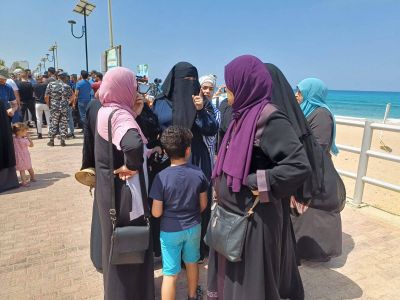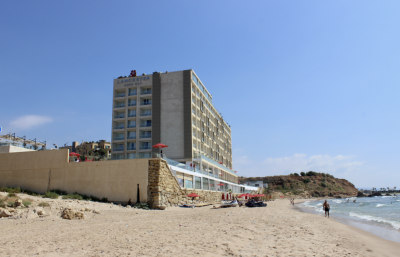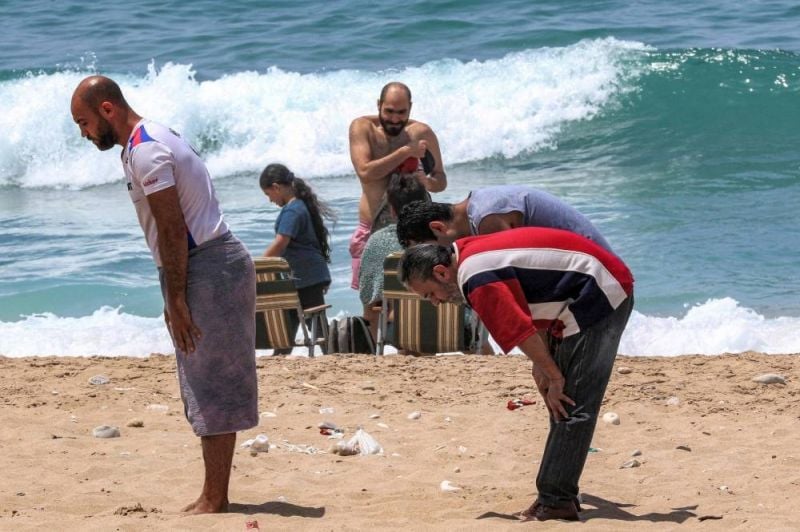
Men pray on the beach in Saida, May 21, 2023. (Credit: Mahmoud Zayyat/AFP)
There was almost nobody at the public beach in Saida on May 22, except for a few shirtless men basking in the sun. But in the city streets, the municipality’s decision to ban women in bikinis from accessing the beach is still controversial.
Khouloud Mohammad, a 31-year-old nurse whom L’Orient-Le Jour met in a bakery, said that she is simultaneously both “for and against” the city council’s decision.
While she said that the measure can have an “oppressive” dimension for women, she added that in “in Jounieh and Jbeil, and in other Christian areas, it is prohibited [for women] to swim in burkini, so why allowing them to swim in bikini in our areas?”
When asked to give examples, she searched for her words. “Everyone will tell you,” she simply said.
Whatever the area, wearing a “burkini” — or modest swimwear — is not legally prohibited on Lebanon’s public beaches. However, some private resorts have reportedly not allowed women in conservative Islamic dress to swim in their pools.
Khouloud is not the only Saida resident who gave this argument.
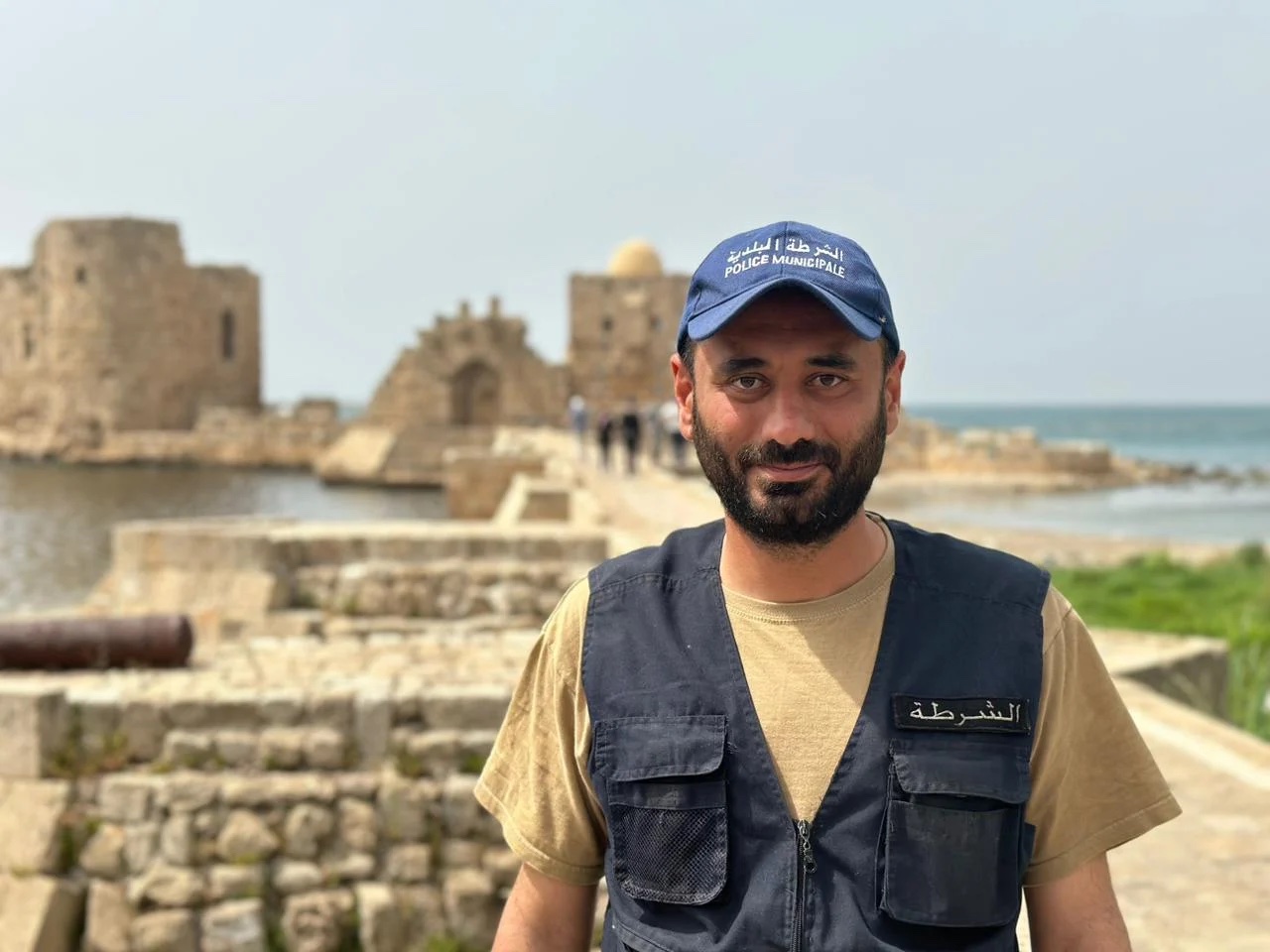 Rami Majzoub, a municipal policeman: “The municipality made a decision that is in harmony with the religious and cultural background of the city’s population.” May 22, 2023. (Credit: Mario Doueiry/L'Orient-Le Jour)
Rami Majzoub, a municipal policeman: “The municipality made a decision that is in harmony with the religious and cultural background of the city’s population.” May 22, 2023. (Credit: Mario Doueiry/L'Orient-Le Jour)
The idea that the beachwear controversy reflects some discord between Muslim and Christian residents often came up in conversations, even though Mayssa Yaafouri, who was the target of a now oft-cited beachwear harassment incident on May 14, is a native of Saida and of the Sunni faith.
On that day, two conservative Muslim sheikhs, accompanied by nearly 30 men, reportedly approached a pair of couples at the public beach in Saida and asked them to leave, saying that the two women were “indecently” attired in bikinis.
In response, Yaafouri filed a legal complaint against her harassers.
Mohammad, 30, said he feels that Saida is not ready yet to accept “this kind of image” at its beaches.
“If a girl comes in a bikini on the public beach of Saida, all the men in the area will … harass her and post her pictures on social media,” he said.
“That’s why I support the municipal council’s decision,” he added. “The city’s sheikhs are instilling in residents the idea that this behavior is ungodly. It’s not what I think. But, this is Saida.”
Nida' al-Hage Hussein, a veiled woman we met near the beach, said that women can “strip” at private beaches. “Our religion does not allow us to strip in front of everyone,” she said.
In the alleys of the historic old city, 33-year-old Ali said that women wearing bikinis on the beach, as well as the feminist demonstration organized on Sunday calling for the respect of personal freedoms, consist of “provocative actions against the religious community of the city.”
“We are not terrorists,” he added. “We welcome tourists who respect our customs in our city,” he said.
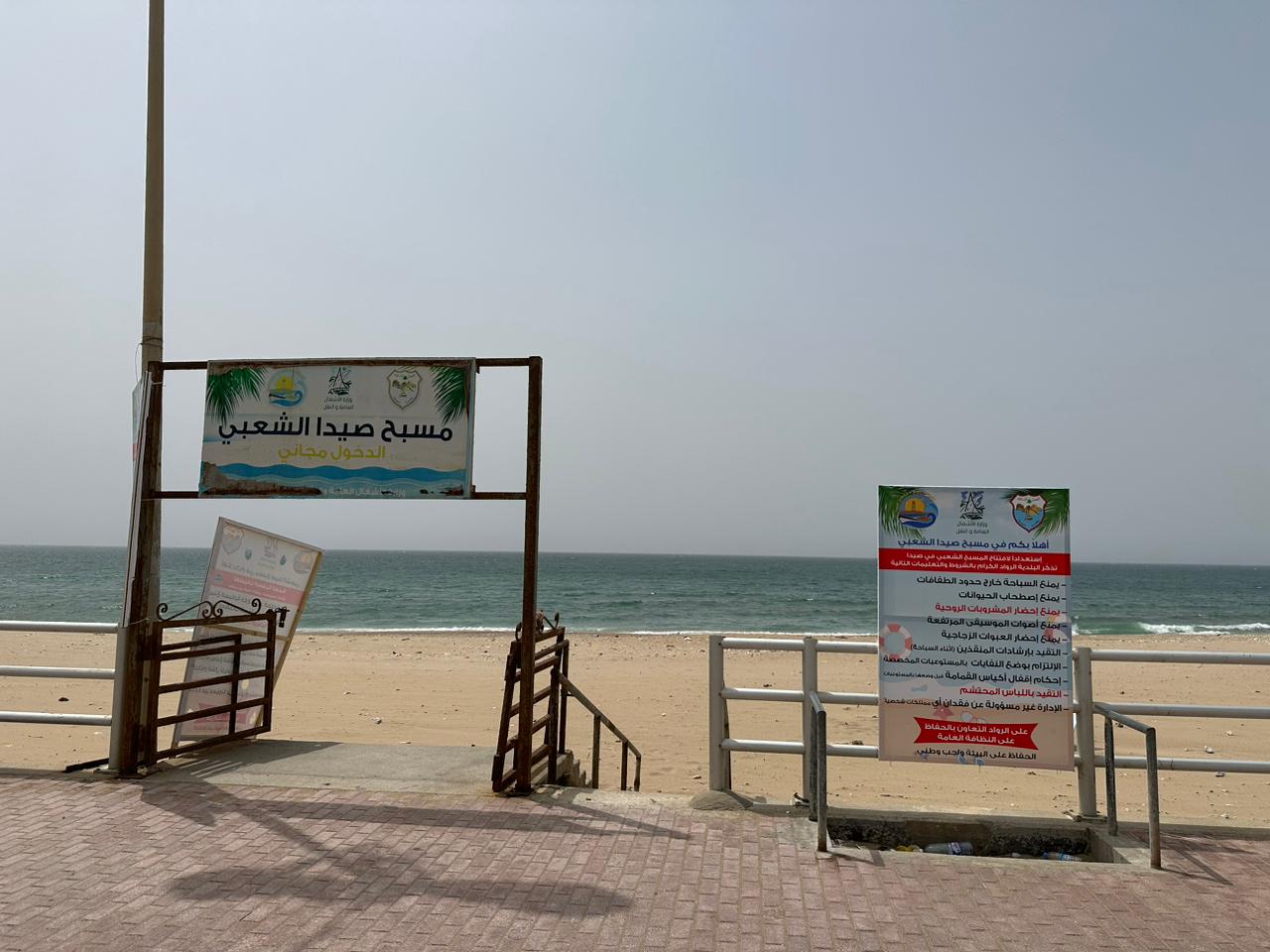 A sign at Saida's public beach on May 22, 2023 saying that beachgoers must wear modest clothing. (Credit: Mario Doueiry/L'Orient-Le Jour)
A sign at Saida's public beach on May 22, 2023 saying that beachgoers must wear modest clothing. (Credit: Mario Doueiry/L'Orient-Le Jour)
“Saida has always been a conservative city and will remain so,” said Fatima, a shopkeeper. She expressed support for the city’s sheikhs.
‘The bikini is something else’
Rami Majzoub, a municipal policeman, said, “The municipality made a decision that is in harmony with the religious and cultural background of the city’s population.”
“In Saida, we do not protest when tourists walk around in shorts, for example. They are tourists after all. But the bikini is something else. If the city’s inhabitants notice the presence of non-veiled women on the beach, they won’t frequent it.”
Speaking to L’Orient-Le Jour by phone, Saida mayor Mohammad Saoudi strongly condemned the fact that two couples were harassed on the beach.
However, he seems to have given in to popular pressure. This is evidenced by the sign now hanging at the entrance to the public beach, which reads in bold red letters that alcohol consumption is banned and that beachgoers must be “decently dressed.”
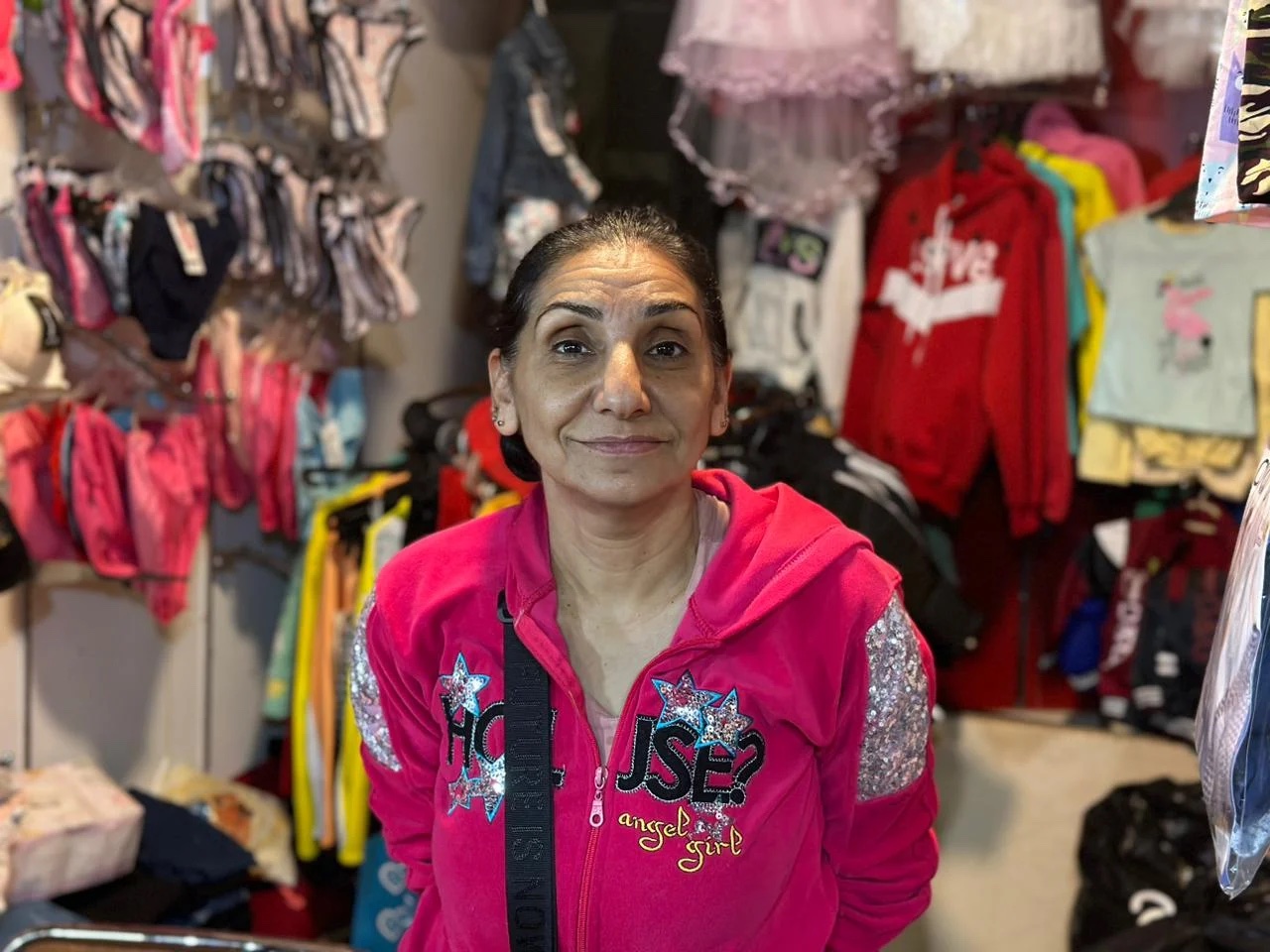 Roula Sandekli, a shopkeeper in Saida's old souk, said the recent measures against bikinis are an attack against "personal freedoms." May 22, 2023. (Credit: Mario Doueiry/L'Orient-Le Jour)
Roula Sandekli, a shopkeeper in Saida's old souk, said the recent measures against bikinis are an attack against "personal freedoms." May 22, 2023. (Credit: Mario Doueiry/L'Orient-Le Jour)
‘These sheikhs destroyed the image of Saida’
Some residents strongly condemned the municipal decision.
Roula Sandekli, a shopkeeper in the old souk, said that “the way the sheikhs dealt with [the couples] suntanning or the municipal decision to ban bikinis on the beach are huge mistakes and attacks on individual freedom.”
She said she believed the Islamist sheikhs were aiming “to create sedition and schism in the city’s community.”
“If these sheikhs and their supporters are so conservative, why did they not ban parties in the middle of Ramadan? Why did they allow girls to dance in suggestive clothes in the street?” she asked.
“Today, this decision affects tourism,” she added. “The Christians, for example, whom we love, will no longer come to Saida because we did not respect them. On the other hand, they respect us in their areas. These sheikhs destroyed the image of Saida,” she added, surrounded by people who appeared to disapprove of her statement.
Nabil, 59, also a shopkeeper, expressed a similar opinion. “We are originally from Saida and we live near the sea. In the 70s and 80s, we, men and women, used to swim in bikinis. Since the advent of the Islamists, everything has changed,” he said.
“I understand that Saida is conservative, but this is exaggerated! Alcohol has already been [de facto] abolished and we have no hotels in the city for tourists. The streets are deserted at 8 p.m..”
This article was originally published in French in L’Orient-Le Jour. Translation by Joelle El Khoury.
